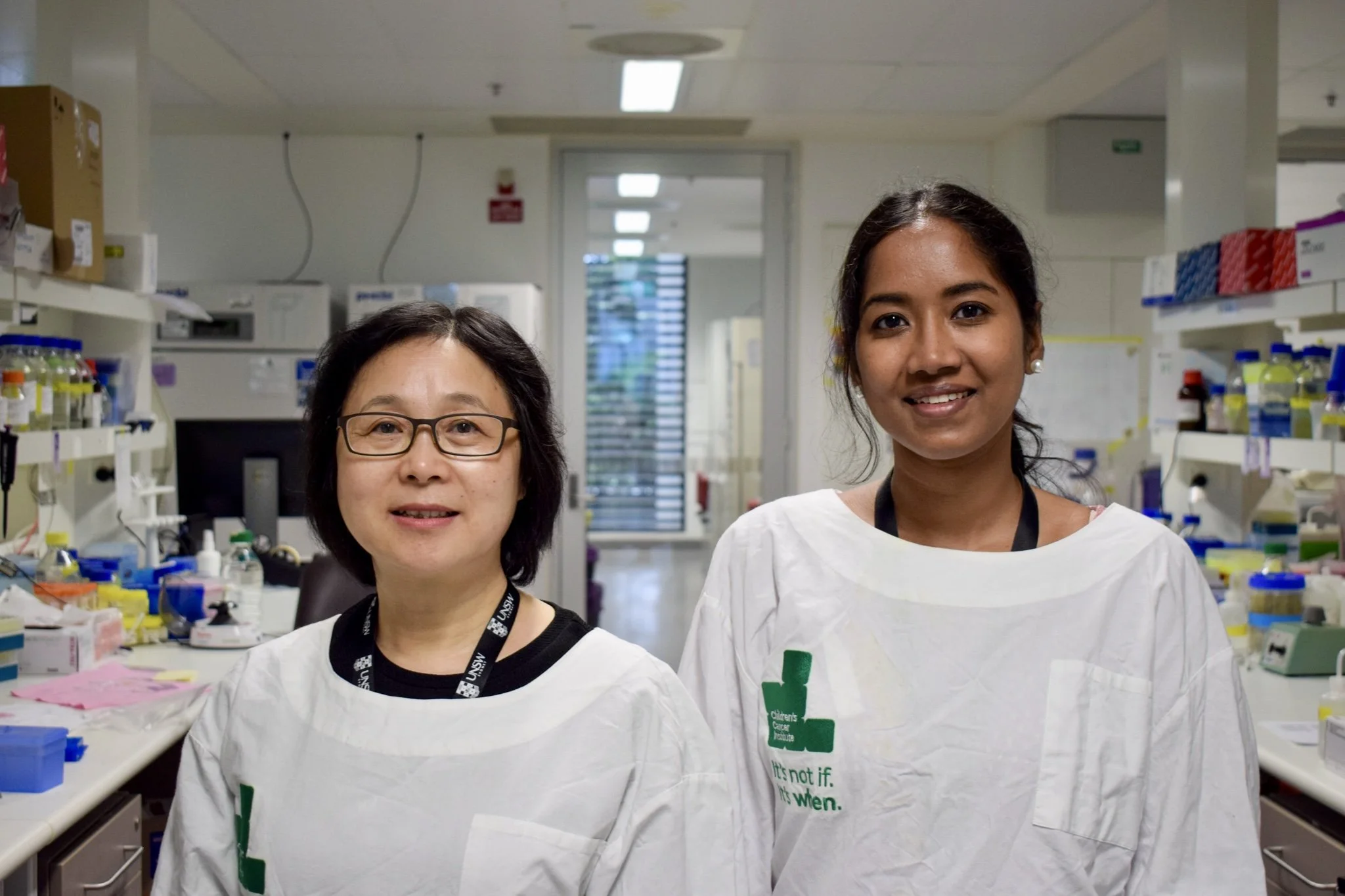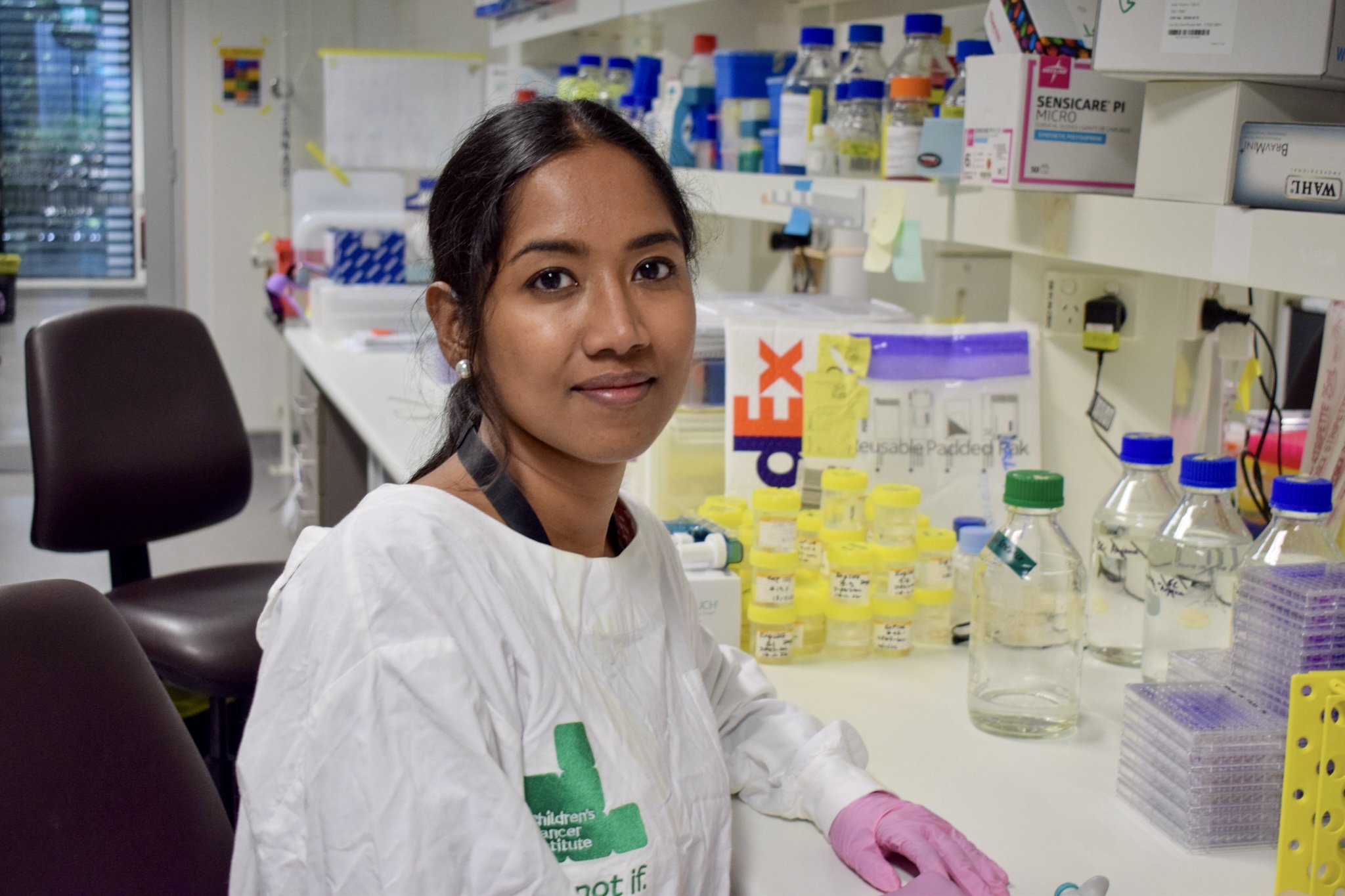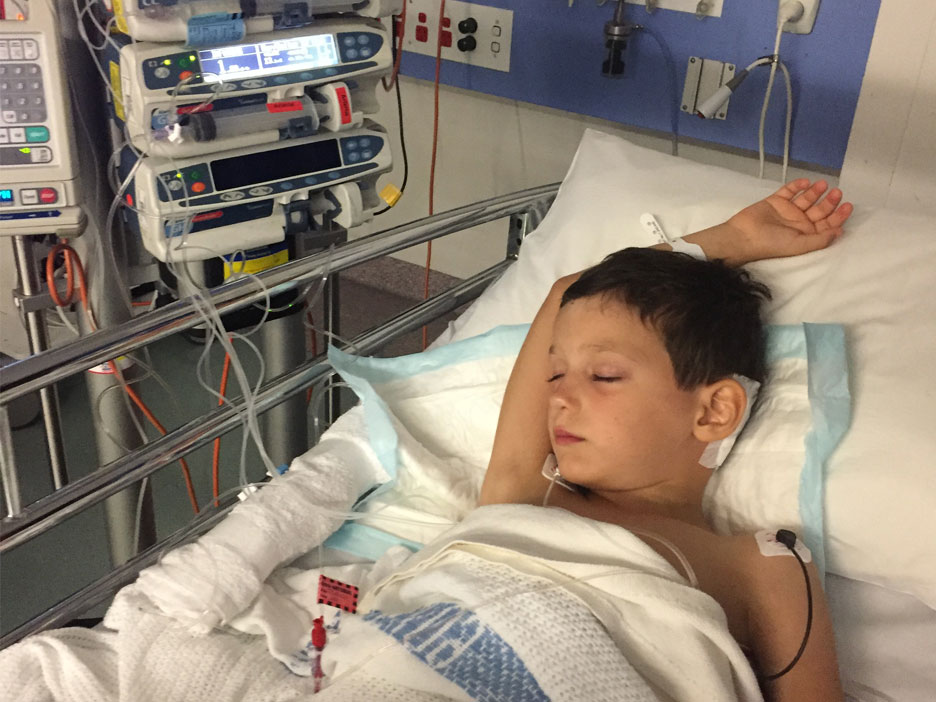Levi’s Project funds five full-time research positions within the Brain Tumours Group at Children’s Cancer Institute at a cost of $1.3m over the next three years. Meet some of the world-class team.
Professor David Ziegler
MBBS, BSc (Med), MD/PhD, FRACP
“I believe we can do for brain cancer what has already been done for leukemia. Once the survival rate for acute lymphoblastic leukemia was 0%. Today it’s 90%.”
Professor David Ziegler is Group Leader of the Brain Tumours Group at Children's Cancer Institute, and Chair of Clinical Trials for the Zero Childhood Cancer Program. He is a Conjoint Professor at UNSW in the Faculty of Medicine. He is head of the neuro-oncology program at Sydney Children’s Hospital, and runs the clinical trials program at the Kids Cancer Centre.
David is a paediatric oncologist with expertise in neuro-oncology and early phase clinical trials. He completed his clinical training in paediatric haematology/oncology at Sydney Children’s Hospital. From 2005-2007, he was a Fulbright Scholar at the Dana-Farber Cancer Institute, Harvard Medical School and Children’s Hospital Boston. His research focuses on the preclinical development and clinical translation of novel therapies for paediatric brain tumours.
Dr Maria Tsoli
Levi Wheeler Fellow
BSc (Hons)(UNSW), PhD (UDE)
“The most difficult moments are when you meet parents who have lost their children from brain tumours. It’s very emotional and very inspiring at the same time.” ”
Dr Maria Tsoli is the senior scientist for Levi’s Project and the Levi Wheeler Fellow. Dr Tsoli has a PhD in Cancer Cell Biology and Molecular Modelling. She subsequently accepted postdoctoral positions at the ANZAC Research Institute/USYD and Sanford-Burnham Institute/USA.
Maria is the lead scientist responsible for establishing state-of-the-art techniques for research in Diffuse Intrinsic Pontine Gliomas (DIPG) and the development of glioma PDX models as part of the national PRecISion Medicine for Children with Cancer trial (PRISM). Key achievements include the (a) establishment of primary brain tumour neurospheres (DIPG, glioblastoma, medulloblastoma) and orthotopic animal models from paediatric overseas and Australian patient’s biopsies/ autopsies; and (b) establishment of single-agent and combination high-throughput screening performed on primary DIPG neurosphere-forming cells. Dr Tsoli is also responsible for the research direction of multiple DIPG projects, laboratory management, and is committed to developing the expertise and careers of junior research staff in the program exhibited by her supervision of research staff (currently 2 PhD students, 5 research assistants and 4 postdocs). For Levi’s Project, Maria has been testing drugs in the lab for their effectiveness on DIPG tumour tissue samples to discover which might inhibit DIPG cell growth. She has been training our two Research Assistants in brain tumour techniques, including culture and maintenance of DIPG cells, development of DIPG tumours in mice using stereotactic device and drug treatments in mice.
Dr Dannielle Upton
BSc (Hons), PhD
Dannielle is a Senior Research Officer at the Children’s Cancer Institute (CCI) and a conjoint lecturer at the University of New South Wales (UNSW). She is a cancer biologist with a research focus on paediatric brain tumours, working primarily on DIPG. Dannielle completed a Biomedical Science degree with Honours through the University of Technology Sydney in 2011. Her honours research project was undertaken at the Kolling Institute for Medical Research, in the Perinatal Research Laboratory. Following this she took on a research assistant position in 2012 at the ANZAC Research Institute in the Andrology Research Laboratory, where she subsequently completed a PhD.
Once completing her PhD, she commenced a graduate research assistant position at the Brain and Mind Centre (BMC). She then commenced her first postdoctoral research position in 2018 at tCCI with the Brain Tumour Research Program. Her current project involves undertaking a variety of cellular, molecular biology and in vivo experiments to develop and improve treatments for Diffuse Intrinsic Pontine Gliomas (DIPG). Her research focuses on understanding the cytotoxic effects of drugs identified from high throughput screening and their effectiveness in patient derived animal models of DIPGs. She is also focusing on the development of novel therapeutic strategies such as combinations with irradiation and other chemotherapeutic agents with a particular emphasis on the translation of laboratory findings to clinical trials. She currently leads a project on a novel compound ACT001 and evaluating its efficacy in treating DIPG as a single agent and in combination and another project investigating the repurposing of Auranofin as an anti-DIPG therapeutic. She is also developing single cell RNA sequencing for analysis of DIPG samples and has a lead role in “Levi’s Project” which is examining the use of sequential therapies in the treatment of DIPG.
Dr Aaminah Khan
Dr Aaminah Khan is a cancer biologist with a research focus on paediatric brain tumours, working primarily on DIPG. She is a post-doctoral researcher at Children’s Cancer Institute and a conjoint associate lecturer at the University of New South Wales.
Aaminah is the first to have completed a research PhD in the field of DIPG in Australia, where she investigated the effectiveness of targeting the polyamine pathway in DIPG cancer cells.
She currently leads a project expanding this study into other paediatric brain tumours including medulloblastoma and ependymomas, and another project investigating the targeting of epigenetic pathways in DIPG by evaluating the efficacy of the combination of a curaxin compound CBL0137 with BET inhibitors.
Aaminah also has a lead role in Levi’s Project, examining the use of effective therapies in a sequential manner for the treatment of DIPG.
Joan Chen
““With the support of Levi’s Project community, I am contributing to research that will help children with brain tumours have a more personalised treatment with less side effects”.”
Joan works on high-throughput drug-screening at Levi’s Project, which uses advanced technology such as robotics, cell imagers and extensive chemical compound libraries to screen thousands of drugs for sensitivities to DIPG cells
Joan also assesses the drug potency of DIPG cells, and has been involved in the establishment of patient-derived xenograft animal models to facilitate development of personalised treatment for DIPG patients.
Anjana Gopalakrishnan
““I’m so proud to be part of this Levi’s Project community and can’t wait for what’s next. It makes all the difference in the world knowing that you are part of something much greater than yourself.””
Anjana has been working at Children’s Cancer Institute in the Personalised Medicine team since 2018 and joined the Levi’s Project team in June 2021.
As a Research Assistant, Anjana supports the team with various lab experiments including intracranial injections of brain tumour cells on mouse models, performing drug treatments, and monitoring preclinical models of DIPG for disease progression and potential side effects.
Levi’s Story
Doctors found a mass and some swelling on Levi’s brain on December 20, 2017, one month and five days after his 7th birthday. We refer to this as diagnosis day.
ABOUT DIPG
Diffuse Intrinsic Pontine Glioma, or DIPG, is a brain tumour that affects the central nervous system.









